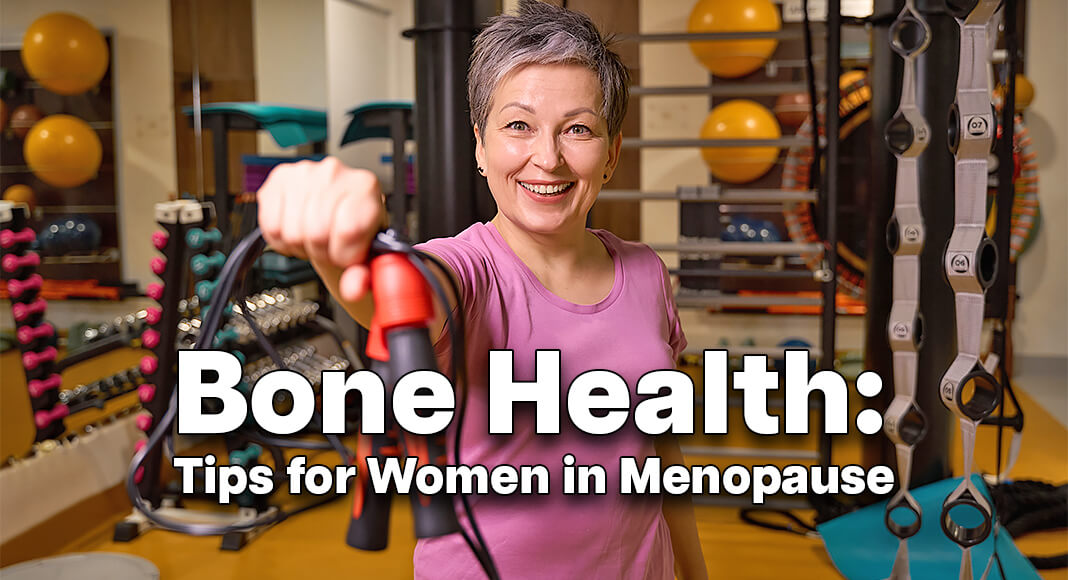
Mega Doctor News
By American Academy of Orthopaedic Surgeons (AAOS)
Newswise — Rosemont, IL – Strong bones and joints are essential for overall quality of life. They enable us to perform daily tasks, participate in activities we enjoy and maintain independence as we age. For women going through menopause, preserving bone and joint health is particularly important, as the risk of osteoporosis and fractures increases significantly during this time. The American Academy of Orthopaedic Surgeons (AAOS) reminds women that changes in hormone levels during menopause can also significantly impact their musculoskeletal frames.
“Approximately 2 million women in the United States and more than 47 million women worldwide will begin menopause annually. With more than 35 symptoms associated with menopause, it is not just hot flashes, brain fog, sleep disturbances or loss of libido,” said Vonda J. Wright, MD, FAAOS, orthopaedic surgeon and AAOS spokesperson. “Musculoskeletal symptoms during menopause can often be silent, devastating and permanent unless addressed. By educating one another and taking steps to invest in health both before and during menopause, midlife can be an amazing time of life for women.”
Menopause is a time when a woman’s body undergoes significant changes. A decline in estrogen levels can lead to a significant decrease in bone density and muscle mass, increasing the risk of fractures, joint pain and other musculoskeletal issues. Dr. Wright notes that focusing on preventative care can be one of the most effective ways for women to become more resilient as they age.
Here are 5 tips from the AAOS to help women maintain strong bones and joints throughout menopause:
- Get Enough Calcium and Vitamin D: Nearly 75% of all hip fractures occur in women. Researchers estimate that 1 in 3 women over 50 have osteoporosis[1], a debilitating disease that occurs when the body loses too much bone, makes too little bone or both. The risk of breaking a bone from a slip or fall, or in serious cases everyday activities like a sneeze, is higher. Through adequate calcium (1,200-2,000 mg), vitamin D (2,000-3,000 IU) and magnesium (500 mg) intake each day, women can slow down bone loss and maintain bone strength.
- Maintain a Healthy Weight: Small changes in body weight can put stress on your joints, increasing your risk of pain and injury. Aim for a healthy weight through a balanced diet and regular exercise including weight training to build muscle.
- Stay Active: Regular weight-bearing exercises like walking, running or dancing help to strengthen bones and improve balance. Aim for at least 30 minutes of moderate intensity exercise most days of the week.
- Challenge the belief that health declines with age: Dr. Wright advocates with her patients for active lifestyles and preventative measures to defy aging stereotypes, no matter what stage of life they are in. Active living helps redefine aging experiences and can empower women to take control of their overall well-being.
- Schedule Regular Checkups: Talk to your doctor about your bone health and risk of osteoporosis. They may recommend an early Dual-Energy X-ray Absorptiometry (DEXA) scan to assess your bone mineral density.
“By paying attention to bone health in your younger years including teens, 20s and 30s, you can build bone that can last,” said Dr. Wright. “Women entering perimenopause in their 40s with risk factors of osteoporosis or history of low bone density and fracture should talk to their doctor about an early DEXA scan and prevention of further bone loss by considering FDA-approved hormone replacement.”
For more information on bone and joint health or to learn more about an aging frame, visit OrthoInfo.org.
# # #
About the AAOS
With more than 39,000 members, the American Academy of Orthopaedic Surgeons is the world’s largest medical association of musculoskeletal specialists. The AAOS is the trusted leader in advancing musculoskeletal health. It provides the highest quality, most comprehensive education to help orthopaedic surgeons and allied health professionals at every career level to best treat patients in their daily practices. The AAOS is the source for information on bone and joint conditions, treatments and related musculoskeletal healthcare issues; and it leads the healthcare discussion on advancing quality. Follow the AAOS on Facebook, X, LinkedIn and Instagram.
[1] Keen MU, Reddivari AKR. Osteoporosis in Females. [Updated 2023 Jun 12]. In: StatPearls [Internet]. Treasure Island (FL): StatPearls Publishing; 2024 Jan-. Available from: https://www.ncbi.nlm.nih.gov/books/NBK559156/








